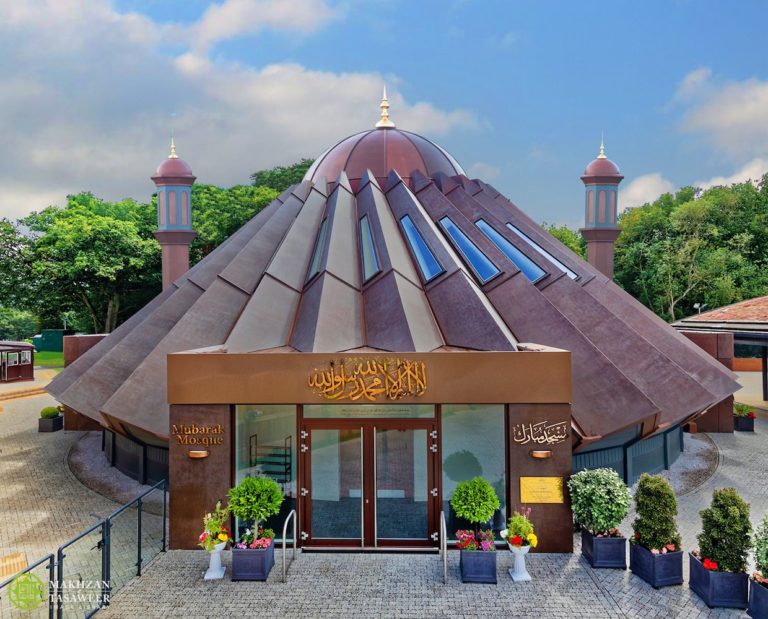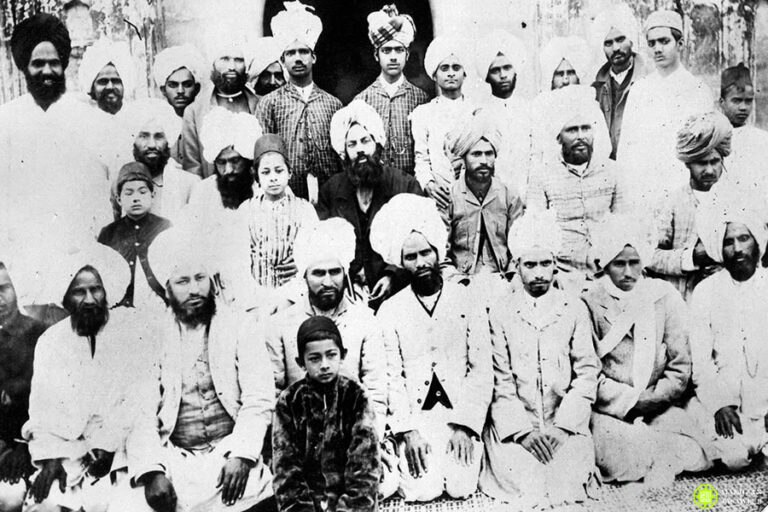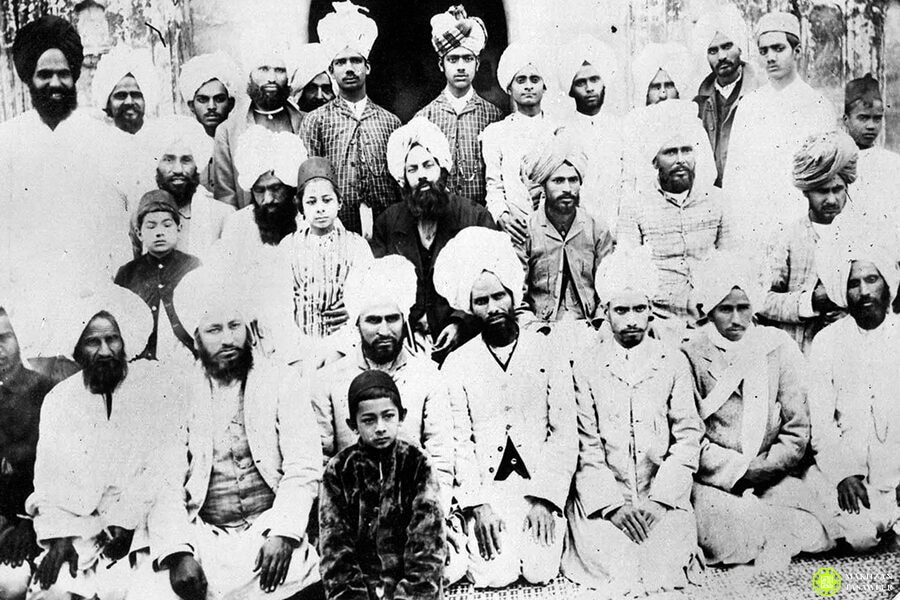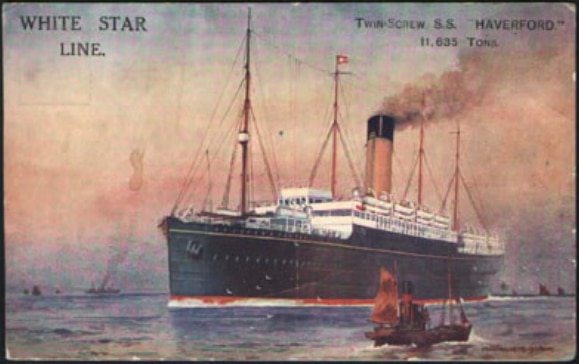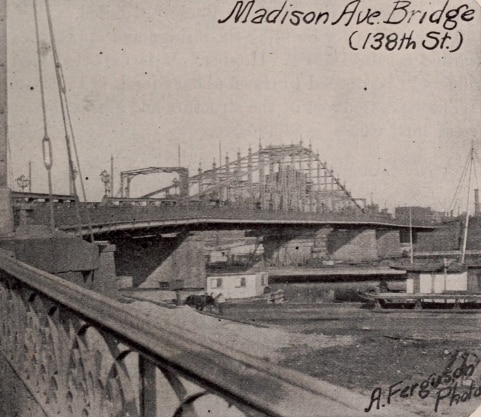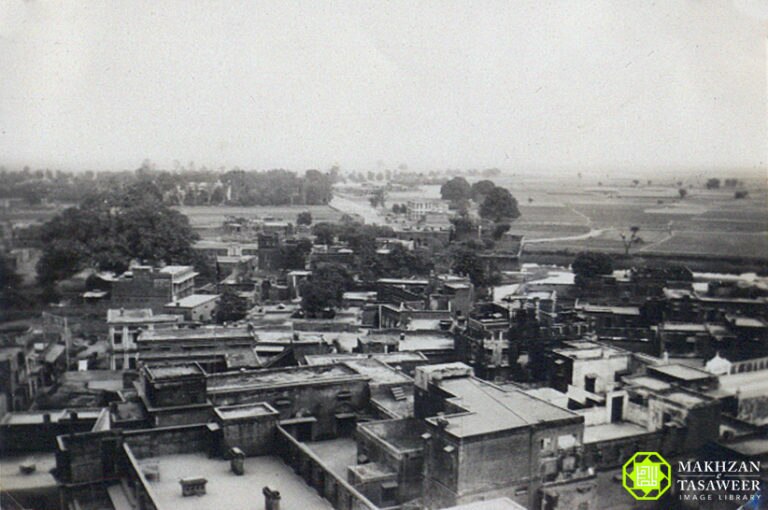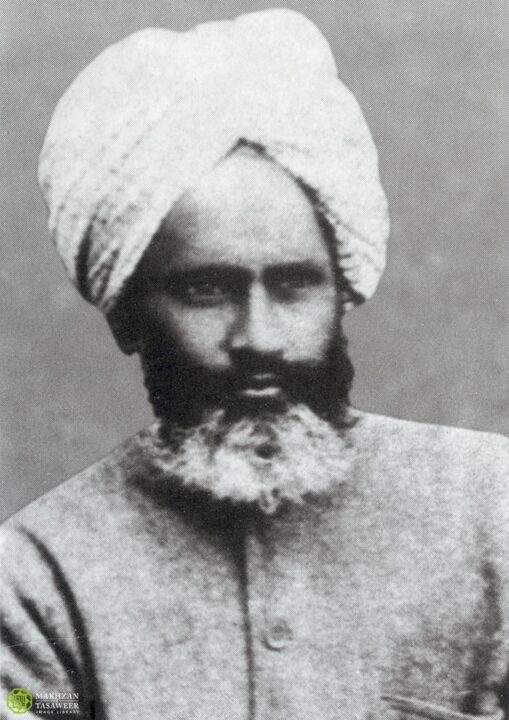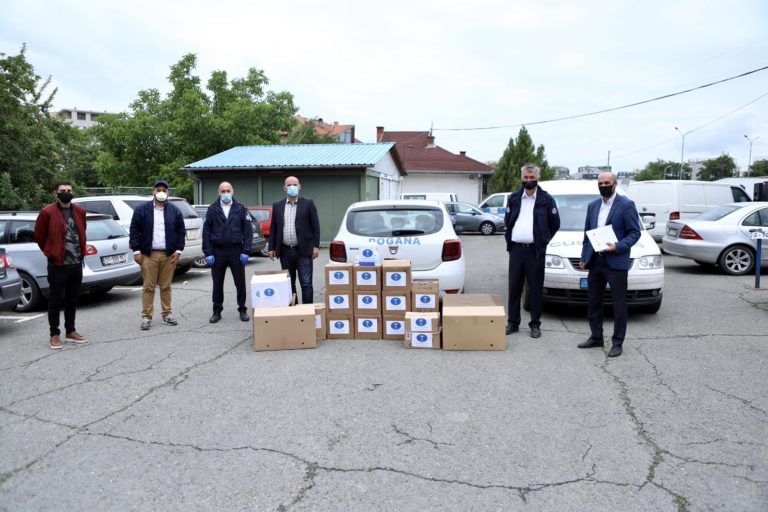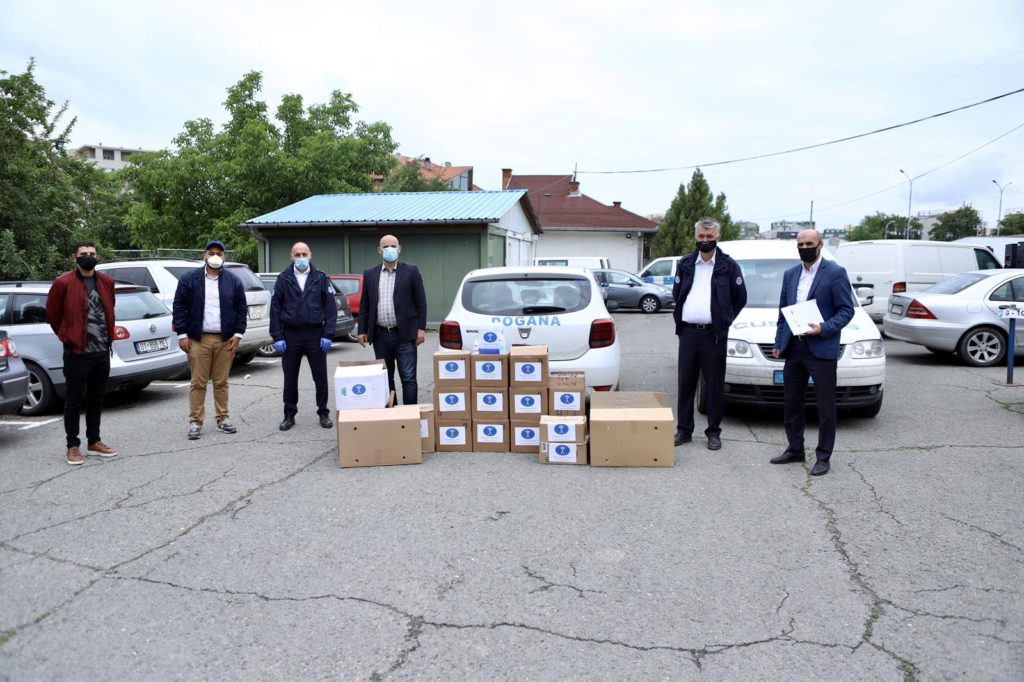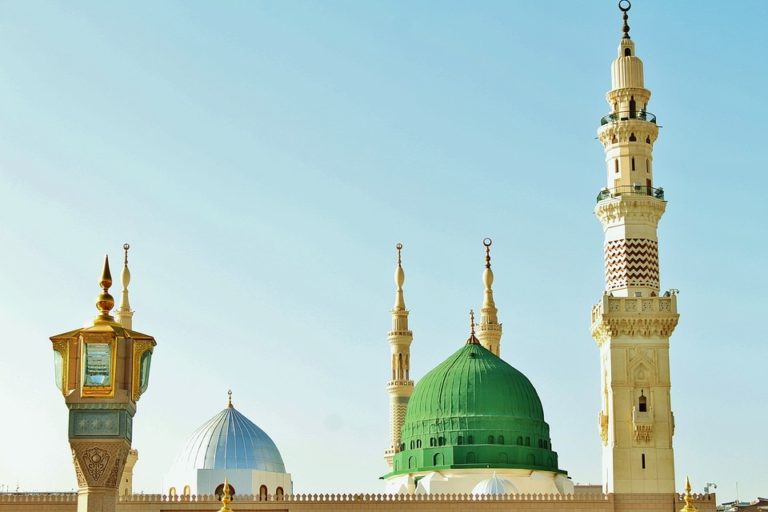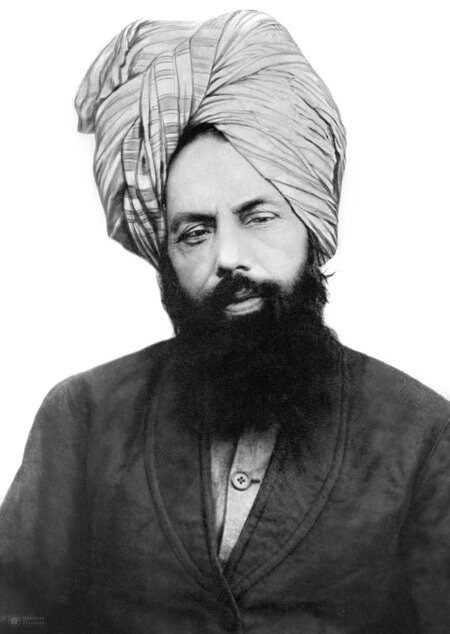Friday Sermon
12 June 2020
Men of Excellence

After reciting the Tashahud, Ta‘awuz, and Surah al-Fatihah, Hazrat Khalifatul Masih Vaa said:
One of the companions, whose account I will narrate today, is Hazrat Saeedra bin Zaid. Hazrat Saeed’s father’s name was Zaid bin Amr and his mother’s name was Fatimah bint Ba‘jah. He belonged to the tribe of Adiyy bin Kaab bin Lu‘ayy. The title of Hazrat Saeedra bin Zaid was Abul Awar, while some have also reported it as Abu Thaur. He was tall, of a wheat-coloured complexion and had thick hair. He was the paternal cousin of Hazrat Umarra bin Khattab. His ancestry connects with Hazrat Umarra in the fourth generation through Nufail and connects to the Holy Prophetsa in the eighth generation through Kaab bin Lu‘ayy. (Usdul Ghabah, Vol. 2, p. 476, Saeed bin Zaid, Dar-ul-Kutub al-Ilmiyyah, Beirut, 2003) (Al-Tabaqaat-ul-Kubra li ibn Saad, Vol. 3, p. 292, 294, Saeed bin Zaid wa min Bani Asiyy bin Kaab bin Lu‘ayy, Dar-ul-Kutub al-Ilmiyyah, Beirut, 1990) (Roshan Sitarey az Ghulam Bari Saif Sahib, Vol. 2, p. 155)
Hazrat Saeed’sra sister, Atikah, was married to Hazrat Umarra bin Khattab while Hazrat Umar’sra sister, Fatimah, was married to Hazrat Saeedra. She is that same sister who became a means of Hazrat Umar’sra conversion to Islam.
Hazrat Saeed’sra father, Zaid bin Amr used to worship the One God during the period of jahiliyyah [era of ignorance prior to the advent of Islam] and used to seek the religion of Prophet Abrahamas. He used to say, “Whoever is the God of Abrahamas is also my God and whatever is the religion of Abrahamas is also my religion.” (Usdul Ghabah, Vol. 2, p. 476, Saeed bin Zaid, Dar-ul-Kutub al-Ilmiyyah, Beirut, 2003) (Usdul Ghabah, Vol. 2, p. 368, Zaid bin Amr bin Nufail, Dar-ul-Kutub al-Ilmiyyah, Beirut, 2003)
Monotheists existed even during that period as well. Some children also ask as to which religion the Holy Prophetsa used to follow and whom he used to worship before Islam. So, the Holy Prophetsa was the greatest of all the monotheists and he also used to worship the One God.
Zaid bin Amr used to refrain from all kinds of transgressions and evils, so much so that he even abstained from meat slaughtered by the idolaters. Once he met the Holy Prophetsa prior to his prophethood. The details of that meeting are recorded in Sahih al-Bukhari as follows:
Hazrat Abdullah bin Umarra narrates, “The Holy Prophetsa met Zaid bin Amr bin Nufail at the bottom of [the valley of] Baldah and this took place before the Holy Prophetsa had received any divine revelation.”
It means that this incident is from the time before the Holy Prophetsa was commissioned as a prophet. As for Baldah, it is the name of a valley which is located to the west of Mecca and comes on the route to Tamim from Mecca.
“A meal was presented to the Holy Prophetsa but he refused to eat from it. Zaid also said, ‘I also do not eat anything which is slaughtered in the name of the idols.’”
The Holy Prophetsa did not eat from it due to the caution that was required regarding animals that have been slaughtered in the name of those other than Allah. Zaid said that he also did not eat animals on which the names of those other than Allah had been mentioned.
The narration continues as follows:
“Zaid bin Amr did not approve of the animals slaughtered by the Quraish and used to say, ‘Allah has created the sheep and He has sent the water for it from the sky and He has grown the grass for it from the earth; yet you slaughter it in the names of those other than Allah.’”
It means that he used to dislike the slaughtering of animals carried out in the name of those other than Allah and he deemed it a great sin. (Sahih al-Bukhari, Kitab Fada‘il Manaqib al-Ansar, Bab Hadith Zaid bin Amr bin Nufail, Hadith 3626) (Farhang Sirat, p. 61, Zawwar Academy Publications, Karachi, 2003)
When Zaid bin Amr began to abhor disbelief and polytheism, he also travelled to faraway lands in search of the truth. With regard to his travels, it is written in another narration of Bukhari, in which Hazrat Ibn Umarra narrates:
“Zaid bin Amr bin Nufail went to Syria in search of which faith to follow. He met a Jewish [religious] scholar and asked him about his religion. Zaid bin Amr said, ‘It is possible that I may embrace your religion; tell me about your faith.’ The Jew replied, ‘You should not embrace our religion as it has become corrupted and you will receive your share of Allah’s wrath.’ Zaid said, ‘I do not run except from Allah’s wrath and I could never face the wrath of Allah as I do not have the strength to bear it.’ Zaid then asked, ‘Can you tell me of another religion?’ The Jew replied, ‘I do not know any other religion except that one ought to be haneef.’ Zaid enquired, ‘What is haneef?’ He said, ‘Haneef is the religion of Abrahamas who was neither a Jew, nor a Christian and used to worship none but Allah Alone.’
“Then Zaid left and met a Christian religious scholar and made the same enquiry. The Christian replied, ‘Do not embrace our religion, for otherwise you will partake of Allah’s curse.’ Zaid replied, ‘I do not run except from Allah’s Curse, nor do I have the strength to bear His curse and wrath; thus will you tell me of another religion?’ The Christian replied, ‘I do not know of any other religion except one ought to be a haneef.’ Zaid enquired, ‘What is haneef?’ He replied, ‘Haneef is the religion of Abrahamas who was neither a Jew, nor a Christian and used to worship none but Allah Alone.’ When Zaid heard their opinions about [the religion of] Abrahamas, he left and upon stepping outside, raised both his hands and said, ‘O Allah! I affirm that I follow the religion of Abrahamas.’” (Sahih al-Bukhari, Kitab Fada‘il Manaqib al-Ansar, Bab Hadith Zaid bin Amr bin Nufail, Hadith 3627)
Zaid bin Amr met with the Holy Prophetsa in his lifetime, however he passed away prior to the advent of his prophethood. Hazrat Aamirra bin Rabi‘ah narrates that Zaid bin Amr was always in search of the correct faith. He expressed aversion to Christianity, Judaism and idolatry and would disagree with his people about this matter. He would preach to them so they would abandon idol worship and that which their forefathers worshiped. He would not eat of their slaughtered meat. On one occasion, he said to him, “O Aamir! I am at odds with my people, I follow the religion of Abrahamas and worship according to how he worshiped (i.e. Prophet Abraham) and after him, I follow the practice of Hazrat Ishmaelas, who would pray in this very direction. Moreover, I await a prophet from among the progeny of Ishmaelas, however, I feel that I will not live long enough to accept him and bear testimony to the truthfulness of his prophethood. O Aamir! If you live long enough to witness the era of that prophet, then convey my greetings to him.”
Hazrat Aamirra narrates, “When the Holy Prophetsa was commissioned by God Almighty, I became a Muslim and conveyed the message of Zaid bin Amr and his greetings to the Holy Prophetsa. The Holy Prophetsa returned the greeting and praying for his forgiveness, he said, ‘I have seen him in paradise in a manner whereby he was straightening his robe.’” (Roshan Sitarey az Ghulam Bari Saif Sahib, Vol. 2, p. 156) (Al-Tabaqaat-ul-Kubra li ibn Saad, Vol. 3, p. 290, Saeed bin Zaid, Dar-ul-Kutub al-Ilmiyyah, Beirut, 1990)
Zaid bin Amr was proud of the fact that he was a monotheist.
Hazrat Asma bint Abi Bakrra narrates an incident from the period of jahiliyyah:
“I saw Zaid bin Amr bin Nufail standing with his back against the Ka‘bah and saying, ‘O people of Quraish! By Allah, none of you, apart from myself, is following the religion of Abrahamas.’ Zaid did not bury his daughters alive as was the custom of some Arab tribes at the time, Zaid however did not do such a thing. In fact, if he came to know of someone intending to kill his daughter, he would say to him, ‘Do not kill her! I will provide for her and feed her on your behalf’. And so, he would take her and after she had reached an age of maturity, he would say to her father, ‘If you wish, I will return her to you and if you so want, I will fulfil all her other needs as well.’” That is, he would bear the costs of her marriage etc. as well. (Sahih al-Bukhari, Kitab Fada‘il Manaqib al-Ansar, Bab Hadith Zaid bin Amr bin Nufail, Hadith 3828)
In another narration, Hazrat Asma bint Abi Bakrra narrates the following: the first narration was from Bukhari and this one is taken from Usdul Ghabah,which is one of the books detailing the accounts of the Companionsra. Hazrat Asma bint Abi Bakrra narrates:
“I saw Zaid bin Amr bin Nufail standing with his back against the Ka‘bah, saying, ‘O people of Quraish! By that Being in Whose hands lies Zaid’s life, none of you, apart from myself, has entered the morning in a state that he is a follower of the religion of Abrahamas.’ He also used to say, ‘O Allah! Only if I knew Your desired way of worship so that I could worship you in that manner. However, I am unaware of it.’ Following this, he would prostrate with his head resting on his hands.” (Usdul Ghabah, Vol. 2, pp. 369-370, Zaid bin Amr bin Nufail, Dar-ul-Kutub al-Ilmiyyah, Beirut, 2003)
Saeed bin Musayyib narrates that Zaid bin Amr passed away five years prior to the prophethood of the Holy Prophetsa. At that time, the Quraish were building the Ka‘bah. When he passed away, he said that he was following the religion of Abrahamas. The account of Hazrat Saeedra bin Zaid was being mentioned and in relation to that his father’s accounts have also been mentioned. Furthermore, the status his son was given in Islam and also the accounts of his father’s virtuous deeds have been preserved in history and therefore, I have mentioned those narrations related to him as well. These narrations can also be found in Bukhari as well. Nevertheless, I shall now continue to mention the accounts related to Hazrat Saeedra bin Zaid.
Once, Hazrat Saeedra bin Zaid and Hazrat Umarra bin Khattab presented themselves before the Holy Prophetsa and enquired of him about Zaid bin Amr, in other words the father of Hazrat Saeedra. Upon this, the Holy Prophetsa said, “May Allah forgive Zaid bin Amr and may He have mercy on him as he passed away in a state whereby he was following the religion of Abrahamas.” Following this, whenever Muslims mentioned Zaid bin Amr, they would pray for him to be shown mercy and forgiveness. (Roshan Sitarey az Ghulam Bari Saif Sahib, Vol. 2, pp. 156-157) (Al-Tabaqaat-ul-Kubra li ibn Saad, Vol. 3, p. 291, Saeed bin Zaid wa min Bani Adiyy bin Kaab bin Lu‘ayy, Dar-ul-Kutub al-Ilmiyyah, Beirut, 1990)
In another narration, it is mentioned that when the Holy Prophetsa was asked about Zaid bin Amr, the Holy Prophetsa said that on the Day of Judgment, he would be raised equivalent to an entire nation. (Usdul Ghabah, Vol. 2, p. 368, Zaid bin Amr bin Nufail, Dar-ul-Kutub al-Ilmiyyah, Beirut, 2003)
As has been mentioned previously, Hazrat Saeedra bin Zaid was the brother-in-law of Hazrat Umarra. Hazrat Saeedra bin Zaid’sra sister, Atikahra bint Zaid was married to Hazrat Umarra. Hazrat Saeedra bin Zaid and his wife, Hazrat Fatimahra bint Khattab accepted Islam in its very early days. They had professed their belief in Islam before the Holy Prophetsa went to Dar-e-Arqam. As has been mentioned earlier, Hazrat Saeed’sra wife was the reason for Hazrat Umarra to accept Islam. (Usdul Ghabah, Vol. 2, p. 476, Saeed bin Zaid, Dar-ul-Kutub al-Ilmiyyah, Beirut, 2003) (Al-Tabaqaat-ul-Kubra li ibn Saad, Vol. 3, p. 292, Saeed bin Zaid wa min Bani Adiyy bin Kaab bin Lu‘ayy, Dar-ul-Kutub al-Ilmiyyah, Beirut, 1990)
The details of this have already been presented during the mention of Hazrat Khabbabra bin Arat. However, as Hazrat Saeedra is being mentioned here, I will briefly mention it here as well. Hazrat Mirza Bashir Ahmad Sahibra has written in Sirat Khatamun-Nabiyyin:
“Only a few days had passed after the acceptance of Hazrat Hamzara, when Allah the Exalted blessed the Muslims with another instance of happiness, in other words, Hazrat Umarra who was a vehement enemy, accepted Islam. The disposition of Hazrat Umarra enclosed a kind of stiffness, which was further increased by his enmity towards Islam. Therefore, prior to his acceptance of Islam, Umarra subjected poor and weak Muslims to great torture on account of their Islam. But when he was exhausted of inflicting this agony and saw no signs of their return, he thought, ‘Why not finish the founder of this very fitna’, i.e. the Holy Prophetsa. Upon this thought, he took hold of his sword and set out in search of the Holy Prophetsa.
“On the way, when someone noticed him walking with an unsheathed sword in his hand, he enquired, ‘O Umar[ra], where to?’ Umarra responded, ‘I have set off to slay Muhammad[sa].’ He replied, ‘Why do you not look after your own home first? Your sister and brother-in-law have accepted Islam.’
“Hazrat Umarra immediately turned and started walking towards the home of his sister Fatimara. As he approached the home, he could hear the sound of the recitation of the Holy Quran from inside, which Khabbabra bin Arat was reciting very melodiously.
“When Hazrat Umarra heard this voice, he was further enraged and entered the home. As soon as Khabbabra heard his footsteps, he hid somewhere and Fatimara (his sister) also hid the various pages of the Holy Quran here and there. When Hazrat Umarra entered, he shouted (at Hazrat Fatimahra and Hazrat Saeedra) that, ‘I heard that you have left your faith!’ Then, he attacked his brother-in-law Saeedra bin Zaid. Fatimahra was also wounded as she moved forward, in an attempt to save her husband and after that very courageously said, ‘Yes Umar! We have become Muslim. Do as you wish, we shall not leave Islam.’”
“When he heard the courageous words of his sister, he cast a glance upon her and noticed that she was covered in blood. This sight had an inexplicable impression upon the heart of Hazrat Umarra. After a short silence, he said to his sister, ‘Show me the word that you were reading.’ ‘I shall not,’ responded Fatimara, ‘for you will destroy the pages.’ Umarra replied, ‘Nay, Nay! Please show me, I shall indeed return them to you.’ ‘But you are unclean,’ said Fatimara, ‘and the Quran should be touched in a state of purity. First bathe, then read.’”
“When Umarra had taken a bath, Fatimara placed the pages of the Quran before him. When he took hold of them and saw, they were the opening verses of Surah Ta Ha. Hazrat Umarra began to read them with an awe-inspired heart and every single word deeply impressed the heart of this well-natured man” and the Holy Prophetsa had prayed for him as well. “While reading, Hazrat Umarra reached the following two verses:
اِنَّنِیۡۤ اَنَا اللّٰہُ لَاۤ اِلٰہَ اِلَّاۤ اَنَا فَاعۡبُدۡنِیۡ ۙ وَ اَقِمِ الصَّلٰوۃَ لِذِکۡرِیۡ
اِنَّ السَّاعَۃَ اٰتِیَۃٌ اَکَادُ اُخۡفِیۡہَا لِتُجۡزٰی کُلُّ نَفۡسٍۭ بِمَا تَسۡعٰی
“‘Verily, I am Allah; there is no God beside Me. So serve Me, and observe Prayer for My remembrance. Surely, the Hour is coming; I am going to manifest it, that every soul may be recompensed for its endeavour.’ (Surah Ta Ha, Ch.20: V.15-16)
“When Hazrat Umarra recited this verse, it was as if his eyes were opened and his latent disposition was suddenly aroused. He powerlessly said, ‘What a strange and holy word this is!’
“When Khabbabra heard these words, he immediately came out from where he was hiding, thanked God and said, ‘This is due to the prayer of the Messengersa of Allah. By God, it was only yesterday I heard the Holy Prophetsa pray that, “O Allah! Do bless either Umar bin Al-Khattab or Amr bin Hisham (Abu Jahl) with Islam.’
“And so Hazrat Umarra said to Khabbabra, ‘Tell me the way to Muhammadsa at once.’ In the fervour of his excitement, he kept his sword unsheathed.” He did not even remember to place the sword back in its cover.
“During this time, the Holy Prophetsa was in Dar-e-Arqam; as such, Khabbabra gave him the location. Hazrat Umarra went there and firmly knocked on the door. When the companionsra peered through the crack in the door and saw Hazrat Umarra holding an unsheathed sword, they were reluctant in opening the door, but the Holy Prophetsa said, ‘Open the door.’ Hazrat Hamzara who was also present there also said, ‘Open the door. If he has come with pure intentions then well and good, otherwise, if his intentions are evil, by Allah, I shall sever his head by his own sword.’
“The door was opened and Hazrat Umarra entered with an unsheathed sword in hand. Upon seeing him, the Holy Prophetsa moved forward and taking hold of Umar’sra mantle, pulled it, saying, ‘O Umar, with what intention have you come? ‘O Messengersa of Allah,’ responded Hazrat Umarra, ‘I wish to become a Muslim.’
“When the Holy Prophetsa heard these words, in the fervour of his happiness, he said, ‘Allahu Akbar!’ and his companionsra called out the slogan of ‘Allahu Akbar’ so loudly that the mountains of Mecca began to resonate.” (Sirat Khatamun-Nabiyyin, Hazrat Mirza Bashir Ahmadra, pp. 157-159)
Thus, this was Hazrat Saeedra who became a means of Hazrat Umarra accepting Islam. Hazrat Saeedra bin Zaid was amongst the very early Muhajireen and upon reaching Medina stayed at the house of Hazrat Rifa‘ahra bin Abdil Mundhir, who was the brother of Hazrat Abu Lubabahra. The Holy Prophetsa established a bond of brotherhood between Hazrat Saeedra and Hazrat Rafira bin Malik and according to another narration it was established with Hazrat Ubayyra bin Kaab. Hazrat Saeedra bin Zaid could not take part in the Battle of Badr, however the Holy Prophetsa granted him a share from the spoils of the battle. (Usdul Ghabah, Vol. 2, p. 476, Saeed bin Zaid, Dar-ul-Kutub al-Ilmiyyah, Beirut, 2003) (Al-Tabaqaat-ul-Kubra li ibn Saad, Vol. 3, p. 292, Saeed bin Zaid wa min Bani Adiyy bin Kaab bin Lu‘ayy, Dar-ul-Kutub al-Ilmiyyah, Beirut, 1990)
Therefore, I have also included him and all those companions as Badri Companions, who either participated in the battle along with the Holy Prophetsa or, upon the instruction of the Holy Prophetsa, were given a share from the spoils [from the Battle of Badr] and thus also included them amongst the Badri companions. The reason why he did not participate in the Battle of Badr has been previously mentioned in reference to Hazrat Talhara bin Ubaidillah. However, it is important to mention it again now and also it has been two to three months since it was last mentioned. In any case, the reason why Hazrat Saeedra bin Zaid did not participate in the Battle of Badr is as follows:
The Holy Prophetsa was aware that the caravan of the Quraish had departed from Syria and subsequently he sent Hazrat Talhara bin Ubaidillah and Hazrat Saeedra bin Zaid 10 days prior to his own departure, in order to gather information about this caravan. Both of them set off and reached Haura, where they stayed until the caravan passed by. Haura was a resting place situated along the Red Sea, where caravans travelling between the Hijaz and Syria would pass by.
Nevertheless, the Holy Prophetsa came to know of the news of the caravan before Hazrat Talhara and Hazrat Saeedra returned, i.e. that the caravan already passed by and was not coming towards them. The Holy Prophetsa did not know the exact information, but, nonetheless, had found that the caravan had gone. The Holy Prophetsa assembled the companions and set off in pursuit of this caravan of the Quraish. However, the caravan escaped taking another route, i.e. it quickly set off on a path along the coast. The people of the caravan continuously walked day and night in order to escape from those who were in search for them. And so, by taking a different route which was along the coast, they did not meet.
Hazrat Talhara bin Ubaidillah and Hazrat Saeedra bin Zaid set off towards Medina in order to inform the Holy Prophetsa of this caravan. They were unaware that the Holy Prophetsa had already departed for the Battle of Badr. They reached Medina on the same day the battle between the Quraish and the Holy Prophetsa took place in Badr. Both of them set off from Medina in order to present themselves before the Holy Prophetsa and met with him at Turbaan, while he was returning from Badr. Turbaan is a valley at a distance of nineteen miles from Medina, which has an abundance of sweet water wells. The Holy Prophetsa stayed there on his journey towards the Battle of Badr.
There were two different caravans; one, a trading caravan that left by taking a different route, however this other caravan had come from Mecca with the intention of battle and it was against them that the battle took place at Badr. The Holy Prophetsa left medina in pursuit of the trading caravan and to find out what their intentions were and was not aware that an actual army was also approaching. In any case, Hazrat Talhara and Hazrat Saeedra did not participate in the Battle of Badr. However, the Holy Prophetsa granted them a share of the spoils of this battle and thus they were also counted amongst the Badri Companions. (Al-Tabaqaat-ul-Kubra li ibn Saad, Vol. 3, pp. 292-293, Saeed bin Zaid wa min Bani Adiyy bin Kaab bin Lu‘ayy, Dar-ul-Kutub al-Ilmiyyah, Beirut, 1990) (Al-Sirat al-Nabawiyyah alaa Daw al-Quran wa al-Sunnah, Vol. 2, p. 123) (Farhang Sirat, p. 75, Zawwar Academy Publications, Karachi, 2003)
Hazrat Saeedra bin Zaid was among the Asharah Mubashsharah, i.e. the ten fortunate companions who were given the glad tidings of paradise by the Holy Prophetsa during his lifetime.
Hazrat Abdur Rahmanra bin Auf relates that the Holy Prophetsa mentioned each of the following names of those given the glad tidings of paradise: Hazrat Abu Bakrra, Hazrat Umarra, Hazrat Uthmanra, Hazrat Alira, Hazrat Talhara, Hazrat Zubairra, Hazrat Abdur Rahmanra bin Auf, Hazrat Saad bin Abi Waqasra, Hazrat Saeedra bin Zaid and Hazrat Abu Ubaidah bin Jarahra. (Roshan Sitarey az Ghulam Bari Saif Sahib, Vol. 2, p. 155)
Hazrat Saeedra bin Zaid narrates:
“I bear testimony that nine individuals are paradise-bound, but if I give the same testimony about the tenth, it would not be a sin on my part to do so.” Hazrat Saeedra bin Zaid was asked how exactly, to which he replied, “We were on mount Hira with the Holy Prophetsa and it began shaking. The Holy Prophetsa then said, ‘Remain still O Hira for a prophet or siddeeq [truthful one] or a shaheed [martyr] stands upon you.’” A person then asked, “Who are the ten paradise-bound?” Hazrat Saeedra bin Zaid answered, “The Holy Prophetsa, Hazrat Abu Bakrra, Hazrat Umarra, Hazrat Uthmanra, Hazrat Alira, Hazrat Talhara, Hazrat Zubairra, Hazrat Saad bin Abi Waqasra and Hazrat Abdur Rahman bin Aufra.” They asked, “Who is the tenth?” Hazrat Saeedra bin Zaid replied, “Me.” (Sunan al-Tirmidhi, Abwab Manaqib Abi al-A‘war wa asma, Saeed bin Zaid, Hadith 3757) (Usdul Ghabah, Vol. 2, p. 478, Saeed bin Zaid, Dar-ul-Kutub al-Ilmiyyah, Beirut, 2003)
Hazrat Saeedra bin Jubair relates that Hazrat Abu Bakrra, Hazrat Umarra, Hazrat Uthmanra, Hazrat Alira, Hazrat Talhara, Hazrat Zubairra, Hazrat Saad bin Abi Waqasra, Hazrat Abdur Rahman bin Aufra and Hazrat Saeed bin Zaidra would always be in front of the Holy Prophetsa in the battlefield, in other words, they would be keeping guard and during prayer, they would stand behind him. (Usdul Ghabah, Vol. 2, p. 478, Saeed bin Zaid, Dar-ul-Kutub al-Ilmiyyah, Beirut, 2003)
Hakeem bin Muhammad relates from his father that he saw Hazrat Saeedra bin Zaid wearing a ring with a verse of the Holy Quran inscribed in it. (Al-Tabaqaat-ul-Kubra li ibn Saad, Vol. 3, pp. 294, Saeed bin Zaid wa min Bani Adiyy bin Kaab bin Lu‘ayy, Dar-ul-Kutub al-Ilmiyyah, Beirut, 1990)
During the Khilafat of Hazrat Umarra, when the actual battle began in Syria, Hazrat Saeedra bin Zaid was appointed under Hazrat Abu Ubaidahra as the general of some infantrymen. He displayed extraordinary bravery and determination during the siege of Damascus and in the decisive battle of Yarmuk. During battle, Harat Saeedra bin Zaid was appointed as the governor of Damascus. However, he wrote to Hazrat Abu Ubaidahra stating, “I cannot allow for you to participate in the Jihad whilst I be left deprived of it. Therefore, as soon as the letter is received, you should appoint someone else to this post so that I can join you as soon as possible.” Thus, with little choice, Hazrat Abu Ubaidahra sent Yazid bin Abi Sufyan and Hazrat Saeedra bin Zaid then returned to the battle once more. (Roshan Sitarey az Ghulam Bari Saif, Vol. 2, p. 164) (Siyar as-Sahabah, Vol. 2, p. 138, Saeed bin Zaid, Darul Ishaat)
Hazrat Saeedra bin Zaid witnessed many revolutions and countless wars lifetime. Also, owing to his piety and righteousness he would never involve himself in quarrels, but even then, he would not hesitate in expressing his opinion in a certain matter.
After Hazrat Uthmanra was martyred, Hazrat Saeedra bin Zaid would often say in the Kufa mosque, “It would be of no surprise if the Uhud Mountain were to tremble due to what you people did.” (Siyar as-Sahabah, Vol. 2, p. 139, Saeed bin Zaid, Darul Ishaat)
Similarly, one day, whilst in the Kufa mosque, Mughirah bin Shu‘bah uttered something against the honour of Hazrat Alira. Hazrat Saeedra bin Zaid thereupon stated, “O Mughirah bin Shu‘bah, O Mughirah bin Shu‘bah, O Mughirah bin Shu‘bah, I heard the Holy Prophetsa say that ten people will be in paradise and Hazrat Alira was among them.” (Roshan Sitarey az Ghulam Bari Saif, Vol. 2, p. 165)
Hazrat Saeedra bin Zaid would often have his prayers answered. On one occasion, he was accused of appropriating land, the details of which is as follows. Adjacent to the land of Hazrat Saeedra bin Zaid was that of a lady named Arwa bint Uwais. She complained to Marwan bin Hakam, the governor of Medina appointed by Hazrat Muawiyahra, that Hazrat Saeedra had wrongly seized her land. Marwan appointed some people to investigate the matter. Hazrat Saeedra bin Zaid answered them, “Do you really think that I could commit such a wrongful act after hearing the Holy Prophetsa say that he who unjustly takes control of even a hand’s-breadth of land will be made to wear the collar equal to the weight of seven lands around his neck on the Day of Judgement?” Thereafter, he prayed, “O Allah, if Arwa is lying, make it so that she loses her sight before her death and her grave lies in the well of her house.” Hence, it is recorded that she lost her sight and as she was walking one day, she fell and died in her own well. This was then made an idiom and the people of Medina would say:
أَعْمَاکَ اللّٰہُ کَمَا أَعْمٰى اَرْوٰى
“May Allah blind you as He blinded Arwa.” (Usdul Ghabah, Vol. 2, p. 477, Saeed bin Zaid, Dar-ul-Kutub al-Ilmiyyah, Beirut, 2003) (Roshan Sitarey az Ghulam Bari Saif, Vol. 2, pp. 164-165)
Hazrat Saeedra bin Zaid passed away on a Friday of the year 50 AH or 51 AH, at approximately the age of 70. According to some narrations, his age was above 70 at the time of his demise. He lived in Aqiq which was in the surrounding area of Medina. In the Arab lands, Aqiq was the name of a number of valleys, among which the most important was the valley of Medina called Aqiq, which extended from the south-west of Medina to the north-east and in which all other valleys of Medina are found.
Hazrat Abdullah bin Umarra was preparing for the Friday prayer when he heard the news of the demise of Hazrat Saeedra bin Zaid. He therefore did not proceed to the Friday prayer and immediately set towards Aqiq. Hazrat Saad bin Abi Waqasra washed the body and had it taken on the shoulders of the people to Medina. Hazrat Abdullah bin Umarra then led the funeral prayer and he was buried in Medina. (Usdul Ghabah, Vol. 2, p. 478, Saeed bin Zaid, Dar-ul-Kutub al-Ilmiyyah, Beirut, 2003) (Siyar as-Sahabah, Vol. 2, p. 138, Saeed bin Zaid, Dar-ul-Ishaat) (Farhang Sirat, p. 204, Zawwar Academy Publications, Karachi, 2003)
According to another account, Hazrat Abdullah bin Umarra was preparing for the Friday prayer when he heard news of the demise of Hazrat Saeedra bin Zaid, but he did not go for the Friday prayer. He instead made his way to him and washed his body, applied perfume and led his funeral prayer. Hazrat Aisha bint Saadra relates that Hazrat Saad bin Abi Waqasra was the one who washed the body of Hazrat Saeedra bin Zaid and applied perfume. He then returned home and washed himself. Then, as he came out of his home, he said, “I did not wash myself due to washing the body of Hazrat Saeedra bin Zaid, rather I did so because of the heat.” Hazrat Abdullah bin Umarra led the funeral prayer of Hazrat Saeedra bin Zaid. Hazrat Saad bin Abi Waqasra and Hazrat Abdullah bin Umarra both went down into the grave, i.e. in the burial place, to place the body. (Usdul Ghabah, Vol. 2, p. 478, Saeed bin Zaid, Dar-ul-Kutub al-Ilmiyyah, Beirut, 2003) (Siyar as-Sahabah, Vol. 2, p. 138, Saeed bin Zaid, Darul Ishaat)
Hazrat Saeedra bin Zaid married ten times in total, at different times, during his life and had 13 sons and 19 daughters from all his marriages. (Al-Tabaqaat-ul-Kubra li ibn Saad, Vol. 3, p. 292, Saeed bin Zaid wa min Bani Adiyy bin Kaab bin Lu‘ayy, Dar-ul-Kutub al-Ilmiyyah, Beirut, 1990) (Siyar as-Sahabah, Vol. 2, p. 140, Saeed bin Zaid, Darul Ishaat, Karachi)
The next companion is Hazrat Abdur Rahmanra bin Auf, whose account I will mention briefly for now. During the period of jahiliyyah, Hazrat Abdur Rahmanra bin Auf’s name was Abd Amr and according to another narration was Abdul Ka‘bah. After accepting Islam, the Holy Prophetsa changed his name to Abdur Rahman. He belonged to the tribe Banu Zuhrah bin Kilab. (Al-Tabaqaat-ul-Kubra li ibn Saad, Vol. 3, p. 92, Abdur Rahman bin Auf, Dar-ul-Kutub al-Ilmiyyah, Beirut, 1990)
Sahlah bint Asim relates that he was of a fair complexion, with beautiful eyes and long eyelashes. He had a long nose and his canine teeth were also long. His hair fell down to his ears, he had a long neck, strong wrists and large fingers. (Al-Isti‘ab, Vol. 2, p. 847, Abdur Rahman bin Auf, Dar-ul-Jeel, Beirut)
Ibrahim bin Saad relates from his father that Hazrat Abdur Rahmanra bin Auf was very tall and had a white complexion with a hint of red. He was extremely handsome and had soft skin and did not use any hair-dye. It said that he had a limp in his leg, which happened after sustaining an injury in Uhud whilst fighting in the way of the truth. (Al-Isabah Fi Tamyeez al-Sahabah, Vol. 4, p. 292, Abdur Rahman bin Auf, Dar-ul-Kutub al-Ilmiyyah, Beirut, 1995)
Hazrat Abdur Rahmanra bin Auf was amongst those ten companions who were given the glad tiding of paradise during their lifetime. He was also amongst those six companions whom Hazrat Umarra had appointed to be part of the committee to elect the next Khalifa. Regarding these individuals, Hazrat Umarra stated, “At the time of his demise, the Holy Prophetsa was pleased with them.” (Al-Isabah Fi Tamyeez al-Sahabah, Vol. 4, p. 290, Abdur Rahman bin Auf, Dar-ul-Kutub al-Ilmiyyah, Beirut, 1995)
Hazrat Abdur Rahmanra bin Auf was born ten years after Aam al-Fil, i.e. the Year of the Elephant. Hazrat Abdur Rahmanra bin Auf is amongst those very few individuals who had declared alcohol unlawful for themselves even during the period of jahiliyyah, i.e. prior to the advent of Islam. Hazrat Abdur Rahmanra bin Auf had accepted Islam after being preached by Hazrat Abu Bakrra even before the Holy Prophetsa established Dar-e-Arqam as the centre of Islam. Hazrat Abdur Rahmanra bin Auf took part in both migrations to Abyssinia. (Roshan Sitarey az Ghulam Bari Saif, pp. 103-104) (Al-Tabaqaat-ul-Kubra li ibn Saad, Vol. 3, p. 92, Abdur Rahman bin Auf, Dar-ul-Kutub al-Ilmiyyah, Beirut)
There is a narration in Sahih Bukhari in which Hazrat Abdur Rahmanra bin Auf relates that when he arrived in Medina, the Holy Prophetsa established a bond of brotherhood between him and Saadra bin Rabi. (This narration has been mentioned in reference to Saadra bin Rabi as well, however I shall mention it again.) Upon this, Saadra bin Rabi stated, “I am the wealthiest amongst the Ansar, therefore I shall give you half of my wealth and whichever of my two wives you like, I will separate from her for you. Once her iddat [a fixed period of time before a women can remarry] has passed, you can marry her.” Hazrat Abdur Rahmanra bin Auf replied to Hazrat Saadra bin Rabi that Allah the Almighty may bless his family and wealth, but he did not require anything for all he needed to know from him was whether there was a marketplace where people could trade. Hazrat Saadra informed him that there was a marketplace of the Banu Qaynuqah.
Subsequently, early next morning, Hazrat Abdur Rahmanra bin Auf went there and carried out some trade and acquired some cheese and clarified butter as profit. He then returned to Hazrat Saadra bin Rabi’s house. Similarly, he went to the marketplace every morning and made profit from his trade. Not long had passed that once, Hazrat Abdur Rahmanra bin Auf came before the Holy Prophetsa and had a mark of saffron on him. And so, the Holy Prophetsa asked if he had married and he replied in the affirmative. The Holy Prophetsa enquired who he got married to and he replied that it was with a woman belonging to the Ansar. The Holy Prophetsa then asked how much dowry he had given and he stated that he gave gold the size of a nugget, or he perhaps said a nugget of gold. Upon this, the Holy Prophetsa stated that he should hold a walima [a ceremony after the consummation of marriage], even if it be by offering a single sheep. (Sahih al-Bukhari, Kitab-ul-Buyu‘, Bab Qaul Allah Wa Ahallallahu al-Bai‘a…’, Hadith 2048-2049)
Hazrat Abdur Rahmanra bin Auf relates that he experienced a time whereby even if he picked up a stone, he would expect to find gold or silver under it. In other words, Allah the Almighty had blessed his trade in abundance. (Al-Tabaqaat-ul-Kubra li ibn Saad, Vol. 3, p. 93, Abdur Rahman bin Auf, Dar-ul-Kutub al-Ilmiyyah, Beirut, 1990)
Hazrat Abdur Rahmanra bin Auf participated in all the battles alongside the Holy Prophetsa, including the Battle of Badr and Uhud. (Al-Tabaqaat-ul-Kubra li ibn Saad, Vol. 3, p. 95, Abdur Rahman bin Auf, Dar-ul-Kutub al-Ilmiyyah, Beirut, 1990)
Relating an account from the Battle of Badr, Hazrat Abdur Rahmanra bin Auf relates:
“I was standing in the rows for battle on the day of Badr. When I looked to my right and left, I saw two Ansari youths standing on either side of me, who were very young in age. At that moment, I wished that I was in between two people who were more mature and stronger. Thereupon, one of the youths nudged my hand and asked, ‘O my uncle! Do you recognise Abu Jahl?’ to which I said, ‘O my nephew, why is it that you ask?’ The young boy replied, ‘I heard that he would use foul language for the Holy Prophetsa. I swear by the One in Whose hands is my life, if I see him, I will not let him out of my sight until the one who is destined to die from among us perishes.’ I was astonished by this reply. Then the other boy also tapped my hand and made the same enquiry. A short while passed when I saw Abu Jahl walking between the ranks. I said to the two young boys that there was the one about whom they enquired. Immediately the two youths drew their swords and cutting the ranks pounced on Abu Jahl and killed him. They then returned to inform the Holy Prophetsa of the news. The Holy Prophetsa asked which one from among them killed him? They both laid claim to the kill. The Holy Prophetsa then asked whether they had wiped their swords after they had killed him? They replied in the negative. The Holy Prophetsa then inspected their swords and said that both of them had in fact killed him. The Holy Prophetsa then said that the spoils of war would be given to Muaz bin Amr bin Jamooh. Both youth had the same name; one was Muaz bin Afraa and the other was Muaz bin Amr bin Jamooh.” This is a narration from Bukhari.
I have previously presented the clarification in relation Abu Jahl’s killing but will mention it once again. According to some narrations, the two sons of Afraa, Mu‘awwiz and Muaz severely wounded Abu Jahl to the extent that he was on the brink of death and afterwards Hazrat Abdullahra bin Masud severed his head. Imam Ibn Hajar has also stated the possibility that, “After Muaz bin Amr and Muaz bin Afraa attacked Abu Jahl, Mu’awwiz bin Afraa may have also attacked him as well.” This has been mentioned in the commentary of Bukhari, Fath-ul-Bari. (Sahih al-Bukhari, Kitab Fard al-Khumus, Bab Man lam Yakhmus al-Aslab, Hadith 3141, Kitabul Maghazi, Bab Qatl Abi Jahl, Hadith 3961-3962) (Fath-ul-Bari Sharh Sahih Bukhari, Vol. 7, pp. 295-96, Al-Maktabah al-Salafiyyah)
Whilst mentioning this same account, Hazrat Musleh-e-Maudra has explained it in the following manner:
“Whilst Abu Jahl, who was the leader of the whole of Mecca and the commander of the Meccan army, was arranging the rows of his army for battle, Hazrat Abdur Rahmanra bin Auf, an experienced general, states that he looked to his right and to his left to see what kind of support he had. He found to his amazement, that he had only two young boys from the Ansar on his flanks, who were around 15 or 16 years of age. His heart sank and he said to himself, ‘Today I will not be able to carry out what my heart yearns for because unfortunately I have two inexperienced youths on either side of me. Moreover, they belong to the Ansar and thus are completely inexperienced in the art of war.’”
Hazrat Musleh-e-Maudra further relates:
“Hazrat Abdur Rahmanra bin Auf had hardly finished saying this to himself when one of the boys touched his side with his elbow. Assuming that he wanted to say something to him, he turned towards him and he said, ‘O my Uncle, can you crouch a little more for I wish to say something in your ear, lest my companion hears me.’ Hazrat Abdur Rahmanra bin Auf states that as he bent down to hear him, the youth said, ‘Which one is Abu Jahl, who used to cause pain and torment the Holy Prophetsa. Uncle, I wish to fight him; tell me where he is.’ Hazrat Abdur Rahmanra bin Auf had not yet replied to this youth’s enquiry, when his attention was similarly drawn by the boy on the other side, who tapped his elbow and asked him the same question, ‘O Uncle, which one is Abu Jahl, who used to cause pain and torment the Holy Prophetsa? I wish to kill him today.’
“Hazrat Abdur Rahmanra bin Auf states that despite being a seasoned soldier, he did not think that even he would be able to kill Abu Jahl, who was not only the commander of the enemy but was surrounded by such experienced and skilled soldiers. Hazrat Abdur Rahmanra bin Auf raised his finger to point at Abu Jahl for both of them and said, ‘There is Abu Jahl, who is armed to the teeth and standing behind the lines protected by those strong and fearless generals, with drawn swords.’ By this, Hazrat Abdur Rahmanra bin Auf meant that to do such a thing was impossible for such inexperienced youth. However, he had not even dropped his finger, when the two boys dashed into the enemy ranks like an eagle catches its prey, making straight for their chosen target. Ikramah, the son of Abu Jahl, was standing in front of him, who was also a very experienced and fearless general, however, the two Ansari youth went so suddenly that no one could even react quick enough to find out why they were advancing ahead and quickly reached the guards in order to attack Abu Jahl. Their attack was so swift and sudden that the soldiers stood at guard could not even bring down their unsheathed swords, except for one and he cut the arm off of one the Ansari boys. However, those who are ready and willing to sacrifice their life, what can a severed arm do to stop them? The two youths pounced with such force upon those stood at guard just like a rock falls from a mountain and ultimately attacked Abu Jahl, killing the commander of the enemy even before the battle had commenced.
“Hazrat Abdullahra bin Masud states that towards the end of the battle, he arrived at the location where Abu Jahl was on the floor and breathing his last. Hazrat Abdullahra bin Masud enquired his condition and Abu Jahl responded, ‘I am dying but in a state of anguish. Death is nothing significant, but the most regretful thing is that before I could even fulfil what my heart desired, I was attacked by two youth of the Ansar.’ The people of Mecca would consider the Ansar to be very lowly people hence he was dying in a state of anguish for he had been slain by two youths of the Ansar. He then said to Abdullahra bin Masud, ‘I am in extreme pain. Do me a favour, sever my head with one single blow of your sword, but ensure that you cut my head from the lower part of the neck because the neck cut in this manner is the sign of slain general.’ Although Hazrat Abdullahra bin Masud accepted this request of his to kill him and cut short his pain, but severed his head in a way that it was closer to his chin. In other words, even at the time of his death, this desire of his went unfulfilled, i.e. to have his head severed in a manner where his neck would remain long.” (Tafsir-e-Kabir, Vol. 8, p. 100)
Hazrat Musleh-e-Maudra has related this account in regard to the subject of sacrifice in that even the children were filled with such deep love and affection for the Holy Prophetsa and how they sought to take revenge against those who opposed the Holy Prophetsa.
This account has been related a few times before as well, but in any case, such was their level of sacrifice and love and affection for the Holy Prophetsa that they did not even have any concern for their own lives. I will insha-Allah continue to relate the accounts of Hazrat Abdur Rahmanra bin Auf in the future sermon.
(Original Urdu published in Al Fazl International, 3 July 2020, pp. 5-9. Translated by The Review of Religions.)

